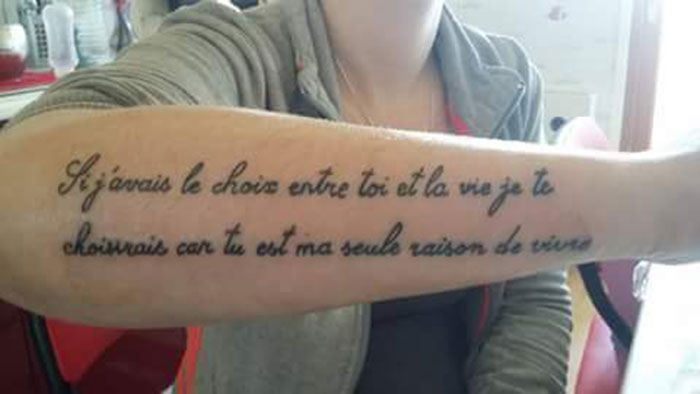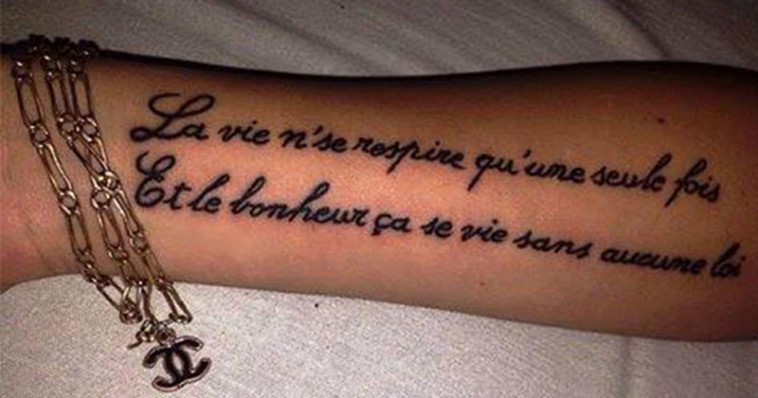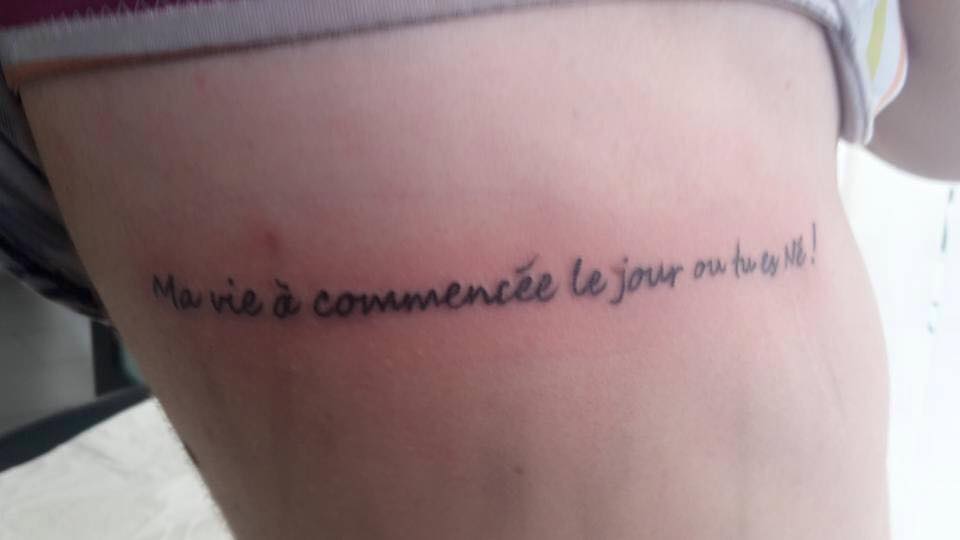posted by Simon Kemp
You know those kinds of language exercises where you have to spot the grammar, spelling or punctuation mistake and correct it? Well, here’s one. What makes this one a little different is that every one of the errors below has been permanently inked on skin by French tattooists. The lucky clients can either wear the mistakes for ever as a sort of walking grammar test, or negotiate to find out how much it costs to add an extra circumflex to an existing design.
Your task below: spot and correct all the errors in the tattoos pictured. (We’ll tell you how many mistakes there are to find.) Answers at the end of the post.
1. One grammar mistake to find:

2. One grammar/spelling mistake to find (not counting the colloquial shortening of “ne” to “n'”):

3. Three mistakes to find in this one:

Answers:
1. ‘Si j’avais le choix entre toi et la vie, je te choisirais car tu est ma seule raison de vivre.’ Should be ‘tu es’, not ‘tu est’. The whole sentence means: ‘If I had to choose between you and life, I’d choose you as you’re my only reason to live.’
2. ‘La vie n’se respire qu’une seule fois, Et le bonheur ça se vie sans aucune loi.’ Should be ‘ça se vit’ (from ‘se vivre’, to be lived), not ‘ça se vie’. The sentence means: ‘Life is only breathed once. And happiness is lived without any laws.’
3. ‘Ma vie à commencée le jour ou tu es né.’ Should be: ‘Ma vie a commencé le jour où tu es né’ (‘a’ not ‘à’; ‘commencé’ not ‘commencée’; and ‘où’ not ‘ou’). The whole sentence means: ‘My life began on the day you were born.’
How did you do?
5/5: Excellent! There may be a lucrative career for you as a French tattoo artist.
3/5 or more: Well done! You can perform a useful public service as a French tattoo corrector.
2/5 or less: Good try! Maybe take a dictionary along with you when getting any French tattoos of your own, though.
These and many more French grammar fails are to be found at Bescherelletamere.fr.



